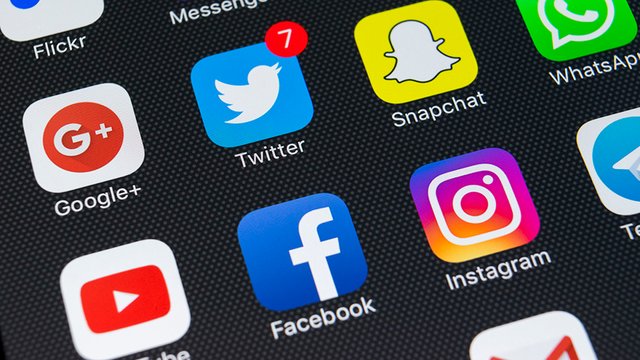Being connected through smart phones and social media is now just a part of growing up for many children and adolescents. Most of them have positive experiences online, but there are risks involved as the excessive use of social media can ultimately harm their mental health. Research in this area is still in its early stage, but the impacts of social media in the lives of many young people are clear.
It is no secret that social media platforms were deliberately designed to hold users’ attention for as long as possible, tapping into psychological biases and vulnerabilities relating to our desire for validation and fear of rejection. Too much passive use of social media – just browsing posts – can be unhealthy and has been linked to feelings of envy, inadequacy and less satisfaction with life.
- Monguno’s Comment: Dasuki’s case ‘will be a child’s play when Buhari leaves office’
- Jesse Lingard proving his worth
Studies have even suggested that it can lead to Attention deficit hyperactivity disorder (ADHD) symptoms, depression, anxiety as well sleep deprivation.
More evidence is necessary before we can consider these findings conclusive. However, with depression on the rise worldwide and half of all mental illnesses starting at age 14, the potential issues warrant further exploration.
Many governments, sociologists and psychologists have also expressed concerns that children today are spending too much time interacting with their phones and missing out on other important social experiences.
The feelings triggered by a ‘like’ can temporarily relieve feelings of loneliness, but they cannot replace socializing altogether. When adolescents who feel lonely offline use social media to compensate for less developed social skills, they may end up feeling even lonelier in the long run.
The meaningful relationships we build face to face, through both verbal and non-verbal cues, are a deep and lasting source of personal satisfaction and happiness. An emoji or an ‘LOL’ can elicit superficial feelings of connection, but face-to-face communication builds more meaningful bonds through body language, touch and facial expressions, along with the interpretation of feelings through tone and nuance; all of these which are often lost in the digital world.
Adolescents often speak online to people they have existing relationships with offline. In moderation, using social media in this way allows teens to keep in touch with friends, classmates and relatives and can potentially improve their offline relationships. But it can become problematic if talking online comes to dominate all social interaction, or in the case of excessive passive browsing, when teens are consuming more information than they are engaging with.
Rather than promoting meaningful communication, the feature can be a substitute for exchanging comments. It can also feel like a public ranking system that makes some teens feel judged and excluded; something many adolescents are already highly sensitive about.
Social media habits are crucial to avoiding potential health risks. Usage should be moderate and balanced with real social time with family and friends. Deciding how much is too much inevitably depends on the individual’s age, character traits and the culture they are living in. However, the influences of the content adolescents encounter and the activities they participate in online are more important to them.
Instead of using social media for the kind of public broadcasting and passive browsing that may lead them to compare ‘likes’, it may be more beneficial to use it to reinforce relationships by having more one-on-one interactions with close friends through comments and messaging.
While adults rightly worry about the implications of excessive social media use, adolescents have the right to have their voices heard in matters that concern them. But they are rarely consulted in these debates. Teens’ own voices and experiences are important to guide emerging policy and practice. After all, young people often have more expertise with these technologies and grew up with them as their major form of communication, entertainment and information.
As both the drivers and benefactors of the social media revolution, tech companies and designers should offer a range of user friendly tools that help parents create age-appropriate environments. They could also change the design to create an environment that is conducive to more meaningful conversations and less browsing and liking.
Mary Atuwele Dangana is a student of Mass communication Department, University of Maiduguri

 Join Daily Trust WhatsApp Community For Quick Access To News and Happenings Around You.
Join Daily Trust WhatsApp Community For Quick Access To News and Happenings Around You.

